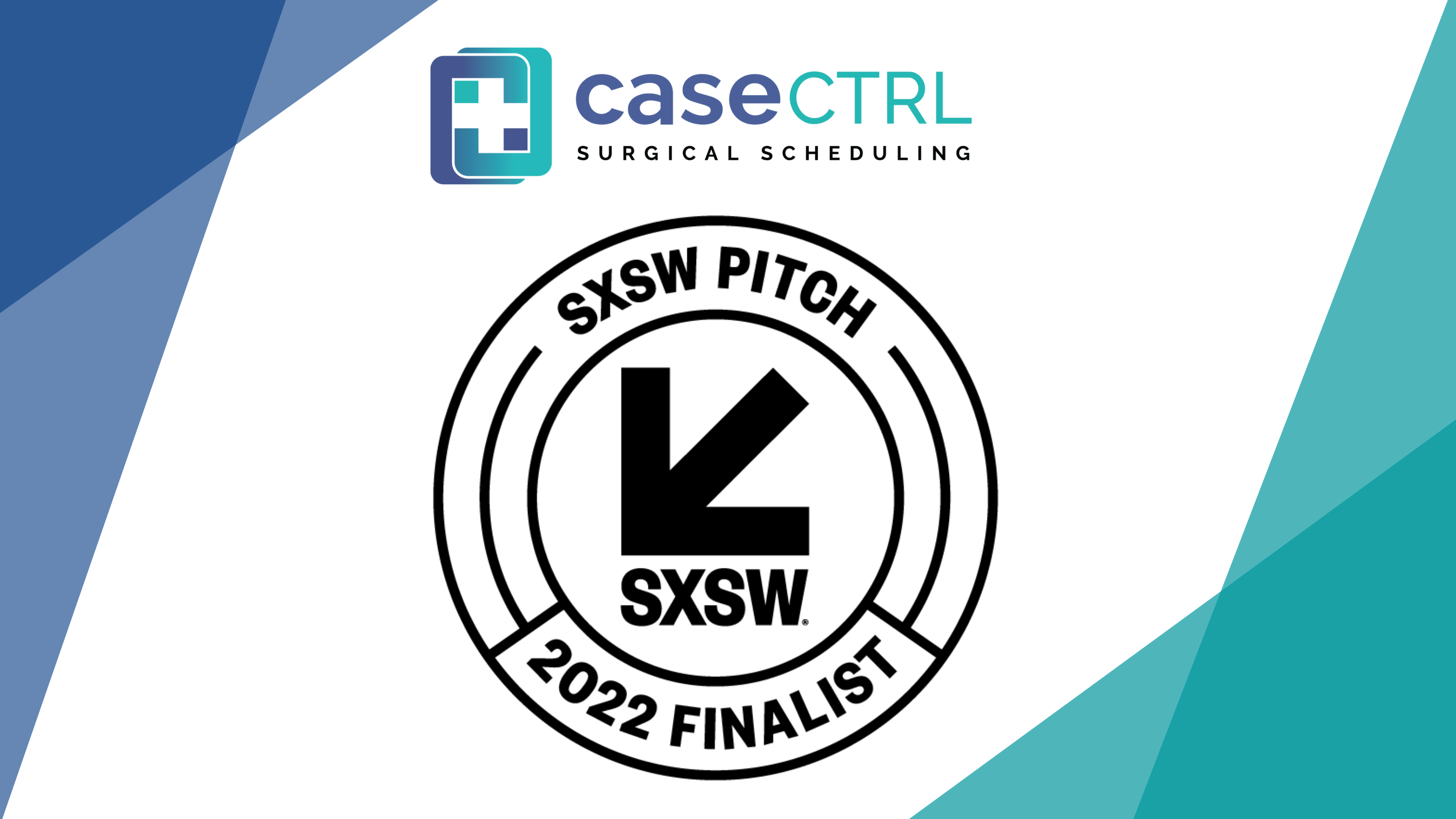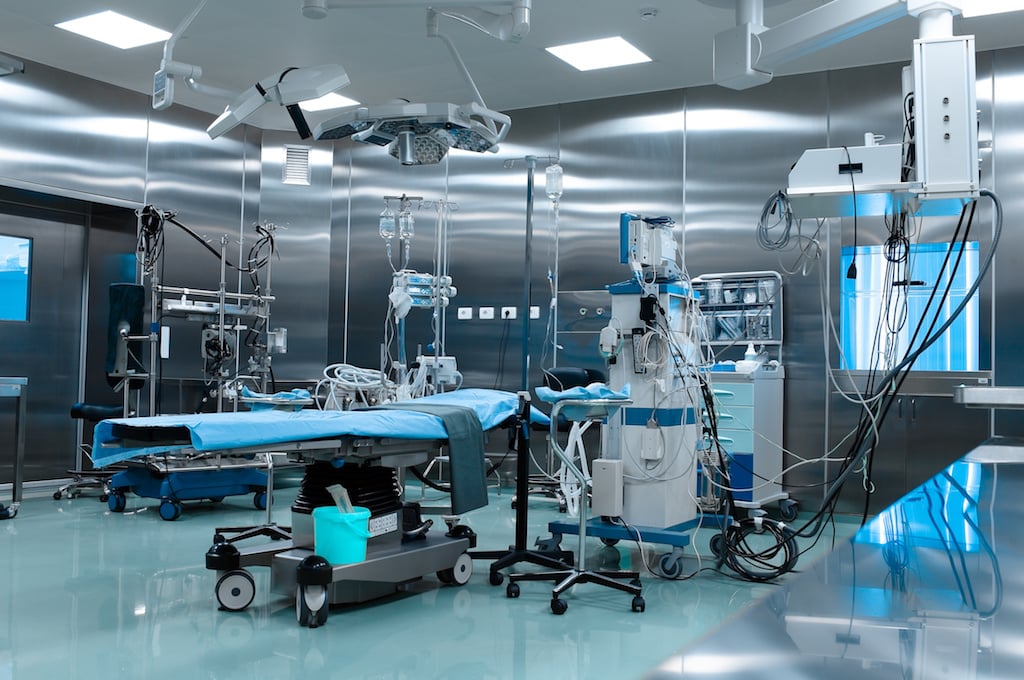Surgery scheduling is uniquely challenging – emergency cases may arise, surgeons are not always able to predict the surgeries they may need to perform, and the time required for a given surgery can vary significantly from patient to patient. For more insights on the ideal time to use surgical scheduling software, and tips to ensure the best ROI, check out this guide.
In addition, surgery scheduling involves the transfer of complex, critical information – the patient’s medical history and electronic health records, the surgeon’s requirements for the specific surgery, the availability of equipment in each operating room, the availability of nursing and OR staff, and more.
An incomplete transmission of case information may force OR staff to make assumptions about necessary equipment based on historic practice, which may be incorrect or lead to incomplete preparation. If a case needs to be rescheduled because information or equipment is missing, it is an exhaustive process to notify all respective parties and restart the process. In the process, critical details can slip through the cracks.
Every year, ASCs and other healthcare practices lose thousands of dollars due to surgery scheduling errors. A study by Tulane University found that every canceled surgery costs an average of $7,100.
And, of course, surgery scheduling issues don’t only eat into the profitability of the operating room – they can also have a serious impact on patient care and the reputation of healthcare practices. Patients may feel frustrated or anxious if they are left to wait after being prepped for surgery. Worse, delaying and rescheduling surgeries may mean that patients don’t receive necessary surgery in a timely manner.
So, what can busy ASCs or hospitals do to avoid running into costly surgery scheduling mistakes and avoid cancellations?
Here are our top four tips for ensuring that as many surgeries as possible stay on schedule:
1. Carefully manage how information about surgeries is compiled and transferred.
In order to start on time, every surgery requires that the necessary documentation and equipment is in place beforehand. The surgeons and medical staff will need access to extensive patient information, completed authorization forms and other legally required documentation – not to mention all the necessary surgical equipment and a prepared operating room.
Bringing together all the information needed to prepare for surgery becomes almost impossible if the information required is compiled across multiple platforms or provided on paper only. As a result, countless surgeries suffer unnecessary delays while the surgical team struggles to source missing medical supplies or track down a signed patient consent form.
When information is handled via a single, unified surgery scheduling system, all parties can spot missing information or scheduling problems well in advance. With surgery scheduling software, it’s easy to keep an inventory updated in real time, to ensure that the equipment and supplies will be in the right place at the right time. In fact, with a more advanced platform such as CaseCTRL, you can even predict what a surgeon will need and how long a surgery will last, based on previous data patterns.
2. Utilize digital communication channels to avoid surgery scheduling errors.
For surgery to be accurately scheduled and optimized, the surgeon ideally needs to communicate a minimum of 150 data points. Too often surgeons provide only the most essential information to schedule a surgery. Existing paper and pen methods and static EMR forms are not conducive to communicating all 150 data points efficiently. Consequently, all the data necessary to truly optimize surgery scheduling is typically lacking. Too many surgery scheduling issues result from simple communication problems, such as difficulties with reading someone’s handwriting or mishearing someone on the phone.
ASCs currently rely on forms to gather critical information to make communication readily accessible to all parties. Becker Hospital Review recommends that all surgery scheduling requests should be processed via an electronic form or surgery scheduling software which obliges the surgeon to provide essential patient details, insurance and procedure information, as well as the need for any specific equipment or supplies. The more information that is required however the more onerous this task becomes.
CaseCTRL uses predictive AI to help surgeons craft complex plans in seconds, making it effortless for a surgeon to empower their team with all 150 data points necessary to optimize their schedules. By conquering this knowledge transfer barrier, CaseCTRL creates new opportunities for optimization.
3. Use surgery scheduling automation to make form-filling quicker and easier.
The medical profession in general is swamped by paperwork; for instance, the average physician spends more than 15 hours a week filling out forms. Surgery scheduling software can radically reduce the amount of repetitive, tedious form-filling required to prepare for each surgery. For example, automation software allows for many forms to be pre-filled with standard or duplicated information, saving the surgery scheduling team hours of manual data entry. This will not only reduce the administrative burden on schedulers, nurses and surgeons; it will also significantly decrease the risk of introducing human error.
From posting sheets, to insurance forms, to disability paperwork, and clearance requests, CaseCTRL can automatically generate these forms for the practice giving back much needed time to the team.
4. Update your surgical preference card system.
Many ASCs and other surgical practices rely on surgical preference cards to make sure that all the supplies, instruments and equipment are in place for a specific procedure done by a specific surgeon. These cards act as a type of checklist for all the surgical needs of the procedure, a set of instructions for positioning, the preferences of a particular surgeon, and so on.
Surgical preference cards can be considered checkpoints between surgical inventory on one end, and the specific needs of surgeons or procedures on the other. However, their usefulness depends on how well they are managed.
While these cards can be extremely helpful if used correctly, they are notoriously difficult to keep up to date. For instance, nurses may add new inventory or requirements to the cards as surgeons refine their approach or discover new procedures, but they may then forget to delete earlier requirements. Furthermore, OR staff may not recognize the subtleties of different cases and why a costly implant or large pan of tools is necessary for one scenario but not the next. Fearful for future case delays, the vital equipment eventually gets appended to the preference cards. Inevitably, the preference card deteriorates into a laundry list of irrelevant equipment. This is hardly unexpected – after all, nurses are there to care for the patient, not to manage the inventory. However, over time it can become an extremely expensive problem. According to one estimate, over $5 billion a year is wasted on expired or lost medical equipment.
Keeping surgical preference cards up to date will make sure that all the equipment needed for a surgery is available at the scheduled time and keep your OR running on schedule. To do this, you’ll need to switch over from the manual system to a surgery scheduling software with a cloud-based data repository. The nuances and preferences for every surgery permutation should be logged so that case-specific equipment stays relevant. This ensures the preference cards are updated over the long term.
With CaseCTRL surgeons can effortlessly communicate their needs for every case. You can even use AI to leverage past data on surgeries to spot ways to optimize and update your cards, save on errors and costs, prevent delays, and avoid wasted medical supplies.
Take Back Control to Reap Bottom Line Benefits
Surgery scheduling errors are costly and potentially even detrimental to patient health. However, many of these errors can be easily avoided by introducing a surgery scheduling software in your ASC or hospital. CaseCTRL’s intelligent, HIPAA-compliant repository learns each individual surgeon’s case preferences, so no one is dependent on a single scheduler. The lack of paper-based communication makes preferences clear and consistent, case to case. No more guesswork means predictable, accountable care, and no more vendor no shows. If you’d like to learn more, just click here to schedule a demo.







































